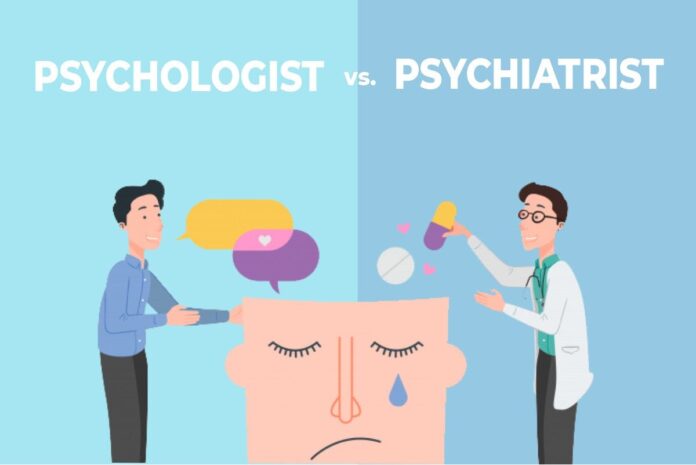Navigating the world of mental health services can often be confusing and overwhelming. Two of the most common professionals in this field are psychiatrists and psychologists. While they share some similarities in helping people with mental health issues, their roles, training, and approaches to treatment can be quite different. Understanding these differences is crucial when seeking help for mental health concerns. In this article, we will explore key factors that can guide you in deciding whether you need a psychiatrist or a psychologist, and what each can offer in terms of treatment and support.
Understanding the Differences in Education and Treatment Approaches

The first step in determining whether you need a psychiatrist or a psychologist is understanding the fundamental differences between these two professions. Psychiatrists are medical doctors (MDs) who specialize in mental health. This medical background allows them to prescribe medication and understand the biological basis of mental disorders. They often focus on managing mental health with a combination of medication and therapy, particularly for conditions that have a strong biological component, like schizophrenia or bipolar disorder.
On the other hand, psychologists typically hold a doctoral degree in psychology (PhD or PsyD) and are experts in psychotherapy, psychological testing, and providing treatments that involve counseling and behavioral interventions. They are trained to diagnose and treat mental health disorders through non-medical means, such as cognitive-behavioral therapy (CBT), and are skilled in helping people deal with a wide range of issues, from life stresses and relationship problems to severe mental illnesses. Understanding these differences is essential in guiding your decision.
Consider the Role of Medication in Treatment

A key factor in determining whether to see a psychiatrist or a psychologist is your openness to using medication as part of your treatment. Psychiatrists, as medical doctors, have the authority to prescribe medication. This can be particularly important if your mental health condition is believed to have a biological component that might respond well to pharmacological treatment. Conditions like severe depression, bipolar disorder, or schizophrenia often require a combination of medication and psychotherapy for effective management.
On the other hand, if you are inclined towards exploring and resolving issues without the use of medication, or if your condition is less severe and might respond well to psychotherapeutic techniques alone, consulting a psychologist might be more suitable. Psychologists focus on employing various therapeutic modalities, such as cognitive-behavioral therapy, talk therapy, or group therapy, which can be highly effective in addressing a range of mental health issues without the need for medication. This approach is often preferred by individuals who are looking for ways to cope with life’s challenges, understand their behavior, and manage their mental health through learning and applying new coping strategies.
Long-Term Management vs. Specific Issue Resolution
When choosing between a psychiatrist and a psychologist, consider your long-term mental health needs versus the need for resolution of specific issues. Psychiatrists, due to their medical training, are often better suited for long-term management of chronic mental health conditions. They can monitor and adjust medications over time and address the complex interplay between mental health symptoms and physical health issues. This makes them particularly valuable for patients with persistent mental health disorders that require ongoing medical oversight.
Conversely, psychologists are often sought for specific, time-limited issues or for therapy over a shorter duration. They excel in helping individuals work through life transitions, relationship problems, specific phobias, or short-term stressors. Their expertise lies in providing tools and strategies for coping and adapting, which can be especially helpful for those seeking to resolve particular life challenges or improve their mental well-being in a more focused, non-pharmacological way. This distinction is crucial in guiding individuals toward the right professional for their unique mental health journey.
Accessibility and Collaboration in Care
Finally, when deciding between a psychiatrist and a psychologist, consider accessibility and the potential for collaborative care. Psychiatrists, being medical doctors, are often associated with healthcare systems and may have shorter appointment times due to high demand and medical focus. This can impact accessibility and the frequency of sessions. Their approach is often more clinical, focusing on managing symptoms through a medical lens.
On the other hand, psychologists might offer more flexibility in scheduling and the frequency of sessions. They often provide longer session times, which is beneficial for in-depth therapy work. Additionally, psychologists might be more accessible for ongoing talk therapy, providing a consistent space for clients to explore and understand their mental health.
Personal Preferences and Comfort Level

An often overlooked but vital aspect of choosing between a psychiatrist and a psychologist is your personal preference and comfort level. Mental health treatment is a highly personal journey, and the rapport you establish with your mental health professional is crucial for effective therapy. Some individuals might prefer a psychiatrist’s medical approach, feeling reassured by the possibility of medication as part of their treatment plan. The psychiatrist’s ability to assess and treat mental health disorders from a medical perspective can provide a sense of security for those who suspect their issues might have a biological basis or require medical intervention.
Conversely, other individuals might feel more comfortable with a psychologist’s approach, which often focuses more on talk therapy and behavioral strategies. This can be particularly appealing for those who wish to explore their thoughts, feelings, and behaviors in depth and are looking for coping strategies that don’t involve medication. Ultimately, your comfort level with the professional’s approach and your trust in their expertise are key factors in a successful therapeutic relationship and outcome. Therefore, it’s essential to consider your preferences, expectations, and what feels right for you in your mental health journey.
Identifying Your Needs
Recognizing the nature and severity of your symptoms is a crucial step in deciding whether to consult a psychiatrist or a psychologist. For instance, if you’re experiencing severe symptoms such as hallucinations, intense mood swings, or thoughts of harming yourself or others, it’s advisable to seek a psychiatrist’s expertise. Look for one close to you, like a psychiatrist in Allen TX or one in Shreveport LA if you live nearby these areas.
They are equipped to handle severe mental health disorders, often requiring medication management alongside therapy. They can assess your physical health and prescribe medications that address chemical imbalances or other biological aspects of mental illness. In contrast, if your symptoms are more related to stress, anxiety, relationship issues, or mild to moderate depression, a psychologist’s approach, focusing on therapy and behavioral interventions, might be more beneficial.









